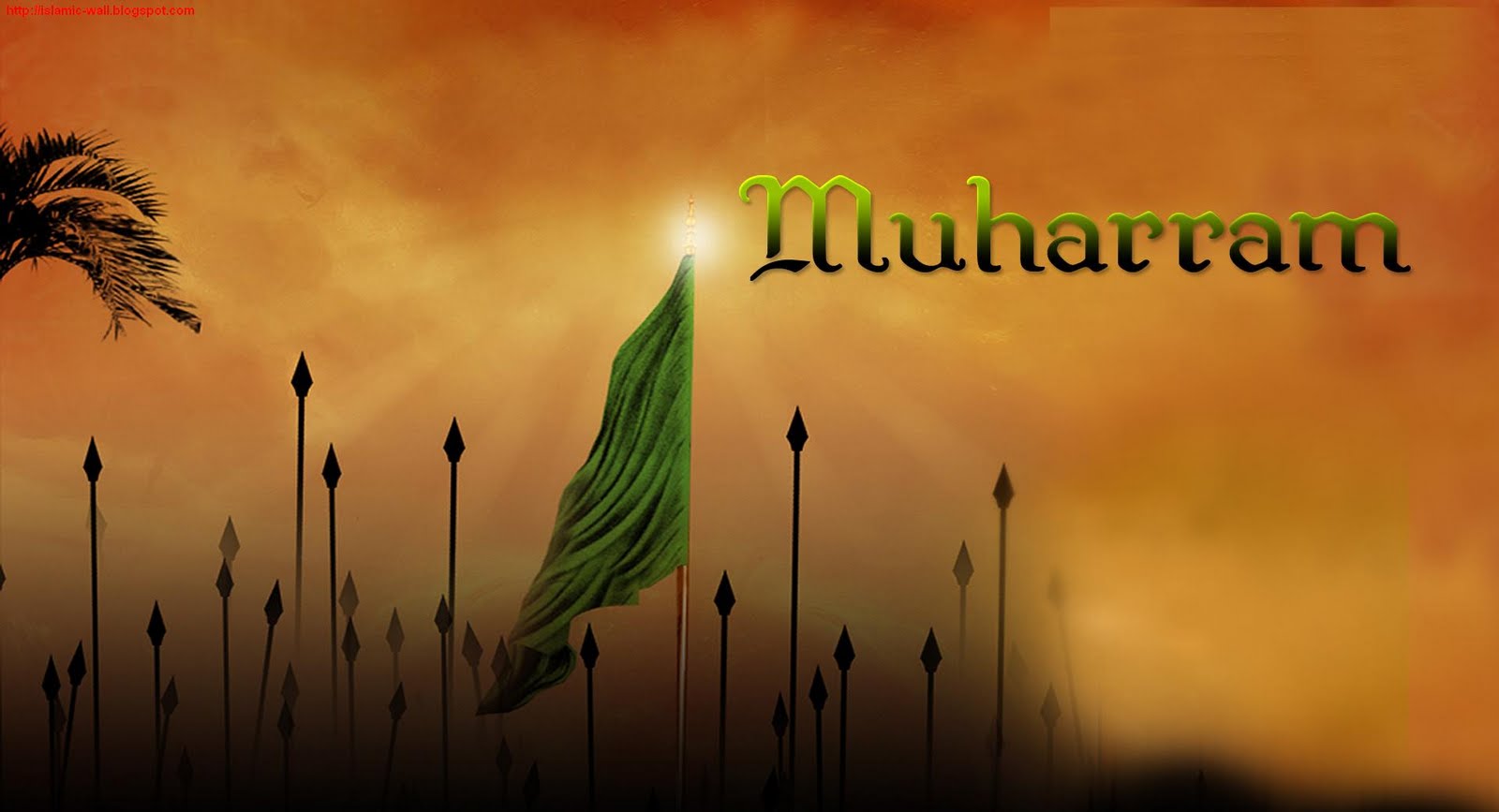Muharram, The Month of Allah
Muharram is the first month of the Islamic calendar. It is among the four sanctified months of the year. The word Muharram is evolved from the Arabic word “Haram” meaning sinful. It is considered to be the second sacred month, following Ramadan. Allah Almighty says in the Holy Quran:
“The number of months in the sight of Allah is twelve (in a year) – so it was ordained by Him on the day He created the heavens and the earth; of them four are sacred; that is the straight usage. So wrong not yourselves therein, and fight the pagans all together as they fight you all together. But know that Allah is with those who restrain themselves.” (9:36)
The interpretation of the phrase “Wrong not yourself therein” is clear that doing evil things in this sacred month is worse than in other months and good deeds done in this month will bring greater benefit.
Fasting during Muharram:
Fasting in this month makes it more sacred and holy. The Noble Prophet (P.B.U.H) said:
“The best fasts after the fasts of Ramadan are those of the month of Muharram”
Though fasting is not mandatory in this month, but the ones who fast in these days with their own will shall be rewarded greatly in the Hereafter. Voluntary fasts in Muharram are the most reward-able ones in the Nafl fasts and will be rewarded by the Almighty Allah Himself. Therefore, one should avail this opportunity as much as he can.
The Day of Ashoora:
Even though the whole month of Muharram is holy, yet, the 10th of Muharram (the day of Ashoora) is the sacred amongst all. The day of Ashoora is an important factor in the prominence of this month.
Hazrat Abbas (RA) narrates pertaining to the Ashoora Day:
“The Prophet (P.B.U.H) came to Madina and saw the Jews fasting on the day of Ashoora. He said, ‘What is this?’ They said, ‘This is a righteous day, it is the day when Allah saved the Children of Israel from their enemies, so Moosa fasted on this day.’ He said, ‘We have more right to Moosa than you,’ so He fasted on that day and commanded (the Muslims) to fast on that day.” (Bukhari)
After the advent of Islam, the Holy Prophet (P.B.U.H) recognized the holiness of this day and fasted on this day and also guided the Muslims to fast. Ibn Abbas (R.A) narrates in the following way:
“I never saw the Messenger of Allah so keen to fast any day and give it priority over any other time than the day of Ashoora and the month of Ramadan.” (Bukhari)
The above hadith shows the insight of Prophet Muhammad (P.B.U.H) referring to fasting during Muharram. From the narration it is clear that He was as keen for fasting on the day of Ashoora as keen as He was when it came to fasting in the days of Ramadan.
Blessings of Muharram:
Among the many bounties of this month, few of these are:
- On this day he who spends more lavishly for the sake of his family members, Allah Almighty will bestow blessing upon the sustenance of the following year.
- Abu Qataada has related that the Prophet(P.B.U.H) has reported to have said:
“It is my thought that by fasting on the 10th of Muharram, Almighty Allah will pardon the sins of the past year.” (Tirmizi)
Misconceptions and Innovations:
Regarding the month of Muharram especially Ashoora many misconceptions have taken place in the minds of the unlearned. However, none of them are supported by Islamic scholars and authentic Islamic stories. Some common stories are:
- Hazrat Adam (A.S) was created on this day.
- Hazrat Ibrahim (A.S) was born on this day.
- On this day Allah accepted the repentance of Hazrat Adam (A.S).
- Doomsday will take place on this day.
All these inclinations and stories are completely baseless and the traditions following these stories are not worthy at all.
Some people are of the mind that righteousness of “Ashoora” is attributed to the martyrdom of Hazrat Imam Hussain (R.A). Without any doubt the martyrdom of Al-Hussain is the most saddest event of Islamic history. Yet it cannot be ascribed to the sanctity of this day as the day of Ashoora was established long ago during the days of Holy Prophet (P.B.U.H).
Another misconception is that this month is evil or unlucky as Hazrat Imam (R.A) was killed in this month. Because of this wrong impression many people avoid having marriage ceremonies in this month. Again, this is completely baseless and opposite to the teachings of Holy Prophet (P.B.U.H). If the death of a renowned person on a specific day renders that day unfortunate for all times to come, one can scarcely find a day of the year which is free from all this bad luck.
Lamentations and mourning:
Related to this month, another amiss practice is to hold the lamentation and mourning ceremonies in the memory of Hazrat Imam (R.A). Our Holy Prophet (P.B.U.H) has prohibited everyone from such mourning ceremonies on the death of anyone. The people before Islam were in the habit of mourning their deceased through loud lamentations, by chest-beating and by tearing their clothes. The Holy Prophet (P.B.U.H) said:
“He is not from us who slaps his chests, tears his clothes and cries in the manner of the people of jahiliyyah (Pre-Islamic ignorance)”. (Al-Bukhaari)
This kind of mourning is impermissible everywhere. Even Hazrat Imam (R.A) before his demise advised His little sister Hazrat Zainab (R.A) not to mourn over His death. He said: “My dear sister! I swear upon you that in case I die you shall not tear your clothes, nor scratch your face, nor curse anyone for me or pray for your death.” (Al-Kaamil, Ibn Katheer vol. 4 pg. 24)
It shows that this type of mourning is condemned by Hazrat Imam (R.A) himself.




